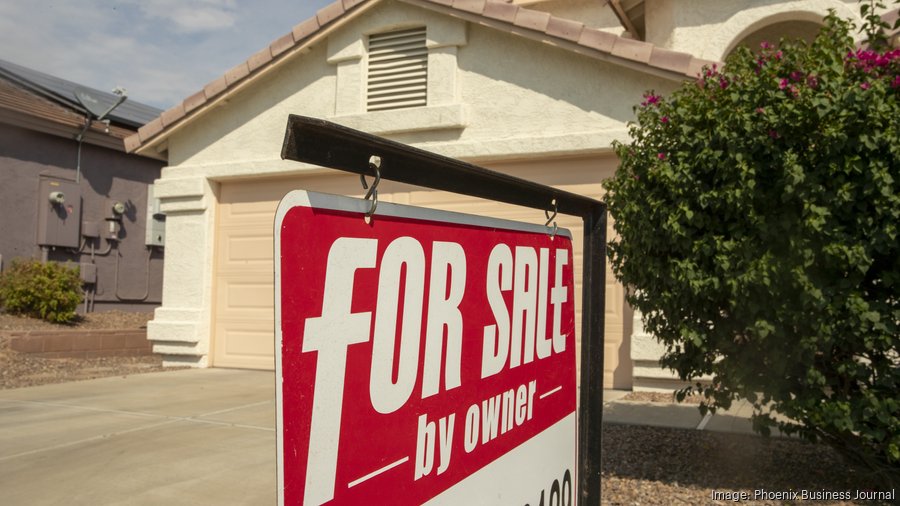Yet again, metro Phoenix topped the nation in home price growth — reporting a whopping 15.8% year-over-year price increase in January at a time when the national gain was 11.2%.
The latest S&P CoreLogic Case-Shiller U.S National Home Price NSA Index released Tuesday shows Seattle right behind Phoenix with a 14.3% year-over-year price gain in January, followed by San Diego, with a 14.2% increase.
The national composite of 11.2% is the highest recorded since February 2006, just one month shy of 15 years ago, said Craig Lazzara, managing director and global head of Index Investment Strategy at S&P Dow Jones Indices.
While demand remains elevated, over the last two months market forces have continued to drive up interest rates, with 30-year conventional mortgage loans rising 0.375% over the last month.
A conventional 30-year loan was 3.25% on March 26, up from 2.875% on Feb. 19, said Aaron Carter, associate broker and co-founder of CarterMosier Group with HomeSmart.
Citing The Cromford Report, which tracks the greater Phoenix residential resale market, Carter said supply is starting to flatten, going down only 1.4 points in the last 30 days.
"And demand has decreased 8.0 points in the same time period, essentially easing up on the demand gas pedal," Carter said.
Low interest rates had buoyed buyers against the shock of ongoing year-over-year double-digit price increases, said Thomas Brophy, research director for Colliers International.
"Additionally, with inventory so low, many buyers are having to do a no look purchase, or 'as is/where is' type purchase contract just to be able to buy something," Brophy said.
Supply shrinks
The month's supply of inventory hit a new record low in February at 1.14 months, down 15% from January's 1.34 month low, he said.
Topping the nation in home price growth is nothing new for metro Phoenix, which has led the nation for 20 consecutive months, dating back to June 2019, said Jeff Tucker, economist for Zillow Group Inc. (Nasdaq: Z).
Buyers are racing to lock in low rates on purchase loans, competing over very limited inventory listed for sale, he said.
"Phoenix is also located at the intersection of two broad regions that have seen surging demand for a few years now: the Sunbelt and the Inland West," Tucker said. "These regions continue to attract homebuyers seeking sunnier weather than the Northeast and Midwest, at a more affordable price than coastal California."
Jim Daniel, president of RL Brown Housing Reports, said he's paying attention to the rate and frequency of builders raising base prices in the Phoenix and Tucson markets.
"Some of the issues attributed to these increases are material and labor cost increases — lumber, cement, copper, resin and appliances," he said. "Build times and available lots are also becoming a concern in both markets, along with land and development costs to bring new lots to market. Some builders have removed pricing from the public view and have sales quotas set each month."
Luxury segment strong
Daniel said he's also seeing some subdivisions temporarily closing where vacant lots are still available.
"As we move further into 2021, new home closings should continue to increase and we expect new home permits to flatten out," Daniel said. "The resale market will continue to be tight with no end in sight of the historic low listing inventory."
These price gains in metro Phoenix come at a time when the city of Phoenix was named a rising star in the luxury market.
A new report by Coldwell Banker Global Luxury identified Phoenix, along with Denver and Dallas, as secondary luxury markets on the rise.
Carter said he's seeing price points increasing in the Phoenix luxury market.
In the 85016 ZIP code, which includes the Biltmore area, 75 homes sold between January and March for an average price of $844,000. That compares 57 similar single-family detached homes selling for an average $532,000 between January and March 2017.
The difference is even more drastic in the 85018 ZIP code, which includes Arcadia, Cudia City Estates and Marion Estates, he said.
The 55 single-family detached homes sold between January and March sold for an average $1.731 million. That's up from $1.083 million for the 37 homes sold between January and March 2017 in that same area, Carter said.





